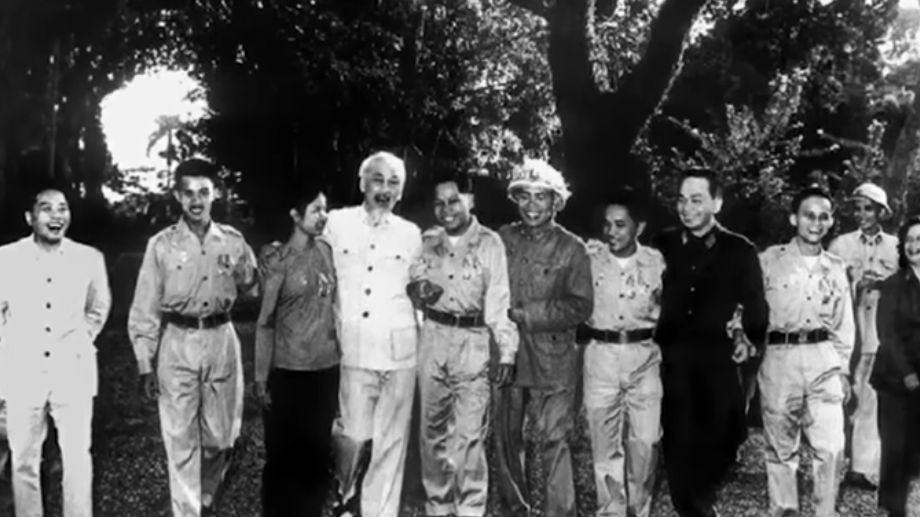In August 1945, the successful August Revolution led to the birth of the Democratic Republic of Vietnam, marking a historical turning point that liberated the Vietnamese nation from colonial and feudal oppression. The people across the country rejoiced in the joy of independence. However, that joy did not last long as the French colonizers, with their malicious intent to reoccupy Indochina, returned to invade our country. The fledgling government, along with the army and the people, had to face countless difficulties. The country was devastated after the war, the economy was in ruins, famine was rampant, and the enemy's strength was increasing.
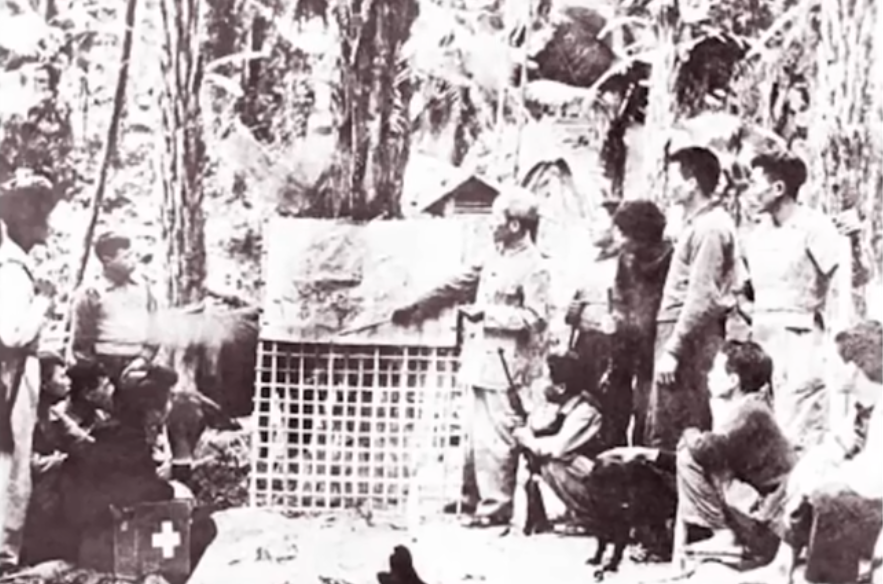
To protect independence, the revolutionary government was forced to leave the capital Hanoi and move to the Viet Bac war zone, a mountainous and treacherous area with extremely harsh living conditions. Here, our army and people faced severe shortages, with food running out, medicine scarce, limited ammunition, and insufficient military supplies. From 1946 to early 1950, our strength mainly consisted of holding out and defending against the superior military power of the French colonizers.
In that context, the soldiers on the front lines had to endure hunger, cold, and untreated wounds. Many soldiers sacrificed not only due to bombs and bullets but also because of the lack of basic living conditions. However, while the people and the army were struggling to fight, some officials with power and authority fell into a life of luxury and corruption, embezzling public funds for personal gain. Among them, Tran Du Chau, a colonel and director of the Military Supply Department, became a symbol of the corruption of power and ultimately paid a heavy price before the law and history.
Tran Du Chau was born in 1906 in Nghe An, a land rich in patriotic and revolutionary traditions. From a young age, Tran Du Chau was exposed to progressive ideas and the love for his homeland. In 1930, he worked as a secretary for the French consulate and began writing for Thanh Nghe Tinh newspaper, a patriotic publication at the time. By 1932, Tran Du Chau switched to working in the Fire Department and later became the accountant for the Fire Department in Bac Ky in 1945. Thanks to his cleverness, dynamism, and extensive connections, Tran Du Chau quickly accumulated a significant fortune.
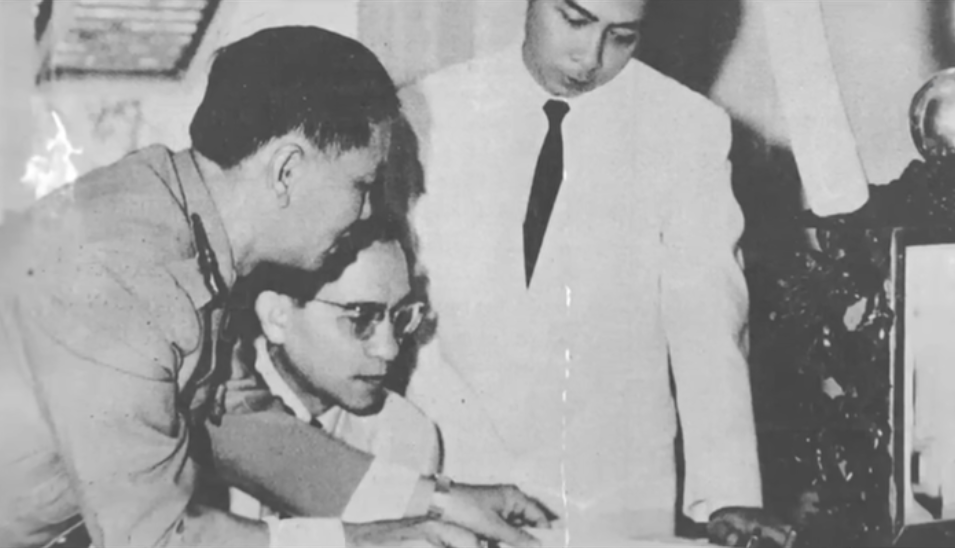
However, he was also a patriotic person. When the August Revolution broke out, Tran Du Chau donated most of his assets to the revolution, contributing to the establishment of the new government. With his organizational skills and management experience, Tran Du Chau was entrusted by the revolutionary government with the important task of gathering and transporting tons of rice and salt from Ha Dong to the Viet Bac war zone to serve the army.
In 1946, due to his outstanding achievements in supplying food and military supplies to the troops, Tran Du Chau was promoted to colonel and appointed as the director of the Military Supply Department, a vital agency of the army responsible for producing and supplying military supplies, food, and other necessities. In this position, Chau held significant power, managing vast sums of money and important resources of the army. During wartime, the Military Supply Department played a crucial role in ensuring logistics for the entire army.
Every decision made by Tran Du Chau directly affected the lives of thousands of soldiers on the front lines. However, the power and money became a deadly temptation that caused Chau to gradually lose his revolutionary qualities and fall into a path of indulgence and corruption. With power, wealth, and a lack of restraint, Tran Du Chau began to change. From someone who once donated assets to the revolution, Chau became someone who exploited his position for personal gain. He used many sophisticated tricks to embezzle public funds, accept bribes, and cover up the wrongdoings of his subordinates. One of Tran Du Chau's most trusted aides was Le Si Cuu, a fellow countryman whom Chau supported and brought to the Military Supply Department.
Under the protection of Tran Du Chau, Le Si Cuu committed a series of corrupt acts. Cuu inflated the prices of fabric purchases, separated transportation and accessory costs while suppliers had quoted all-inclusive prices. This behavior allowed Cuu to pocket hundreds of thousands of dong, a huge sum at that time. Additionally, Cuu provided fake seals of the Military Supply Department to smugglers, helping them evade authorities. Cuu also bribed Tran Du Chau with a significant amount of money.
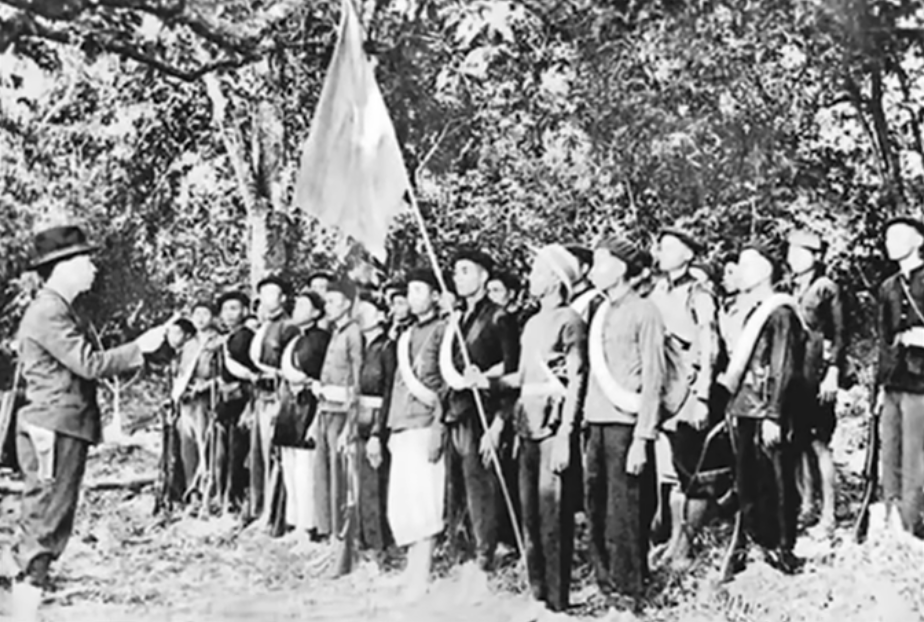
The consequences of these corrupt acts were that the military supplies provided to the troops were severely compromised. Tents were not tall enough, uniforms lacked padding, and blankets were made from poor-quality materials. All of this caused the soldiers on the front lines to endure unnecessary hardships. Meanwhile, Tran Du Chau and his accomplices lived in luxury, throwing parties, hiring women, and spending money on personal whims. In addition to embezzlement and accepting bribes, Tran Du Chau also abused his power in hiring and firing personnel. Chau hired people not based on their abilities but on personal feelings and interests, while also illegally detaining some military workers.
In total, Tran Du Chau embezzled 57,959 Vietnamese dong, accepted bribes of 200,000 dong, 149 US dollars, 28 pieces of green silk, and sold several pistols for money to indulge himself. When rumors about Tran Du Chau's lavish lifestyle began to spread, he not only did not change but also sought to cover up and suppress the truth. However, evil cannot be hidden forever. The turning point of the event occurred during the extravagant wedding of Le Si Cuu, which Tran Du Chau himself officiated. The wedding was held in the Viet Bac war zone, a poor area where the people and soldiers were living in dire conditions.
With a European aristocratic style, this wedding banquet was not only a display of extravagance but also a slap in the face to the soldiers sacrificing on the front lines. Among the wedding guests was poet Doan Phu Tu, a member of the first National Assembly working at the cultural magazine's editorial office. He had just returned from a visit to military units, where he witnessed firsthand the injured soldiers lacking medicine, bandages, and enduring the biting cold of the harsh winter. When invited by Tran Du Chau to recite a poem in congratulations, poet Doan Phu Tu stood up and loudly declared to the crowd that our banquet today is served with the blood and bones of the soldiers.
He then left and wrote a letter denouncing the entire incident to higher authorities. The letter from poet Doan Phu Tu ignited public outrage and attracted the attention of the revolutionary government. This was the turning point that led to the downfall of Tran Du Chau and his accomplices.
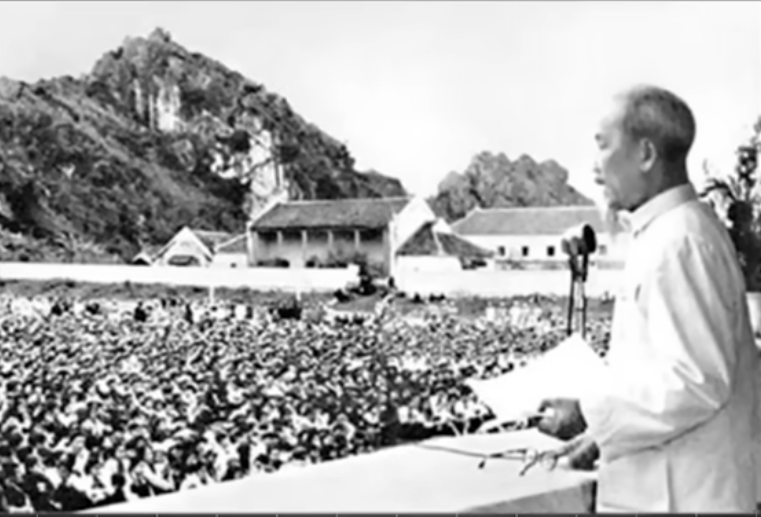
Upon receiving information about the incident, President Ho Chi Minh immediately directed the Government Inspectorate, the Central Inspection Commission, and the General Department of Military Inspection to establish an inspection team to clarify the truth. The inspection team was led by Major General Tran Tu Binh, Deputy Chief Military Inspector. This was not an easy task as Tran Du Chau was a senior official with significant power and extremely cunning in covering up his crimes. The inspection team worked with a high sense of responsibility, respect, and objectivity.
For nearly two months, they conducted investigations, interrogations, met with witnesses, and thoroughly studied related documents. All evidence was carefully collected to ensure accuracy and persuasiveness. Faced with a cunning individual like Tran Du Chau, the inspection team did not allow any mistakes to occur. The investigation results clarified all the crimes of Tran Du Chau, Le Si Cuu, and their accomplices. The evidence showed that Chau not only embezzled public funds and accepted bribes but also organized a sophisticated corruption network within the Military Supply Department. The report from the inspection team was sent to President Ho Chi Minh, the Government, and the Ministry of National Defense as a basis for bringing the case to trial.
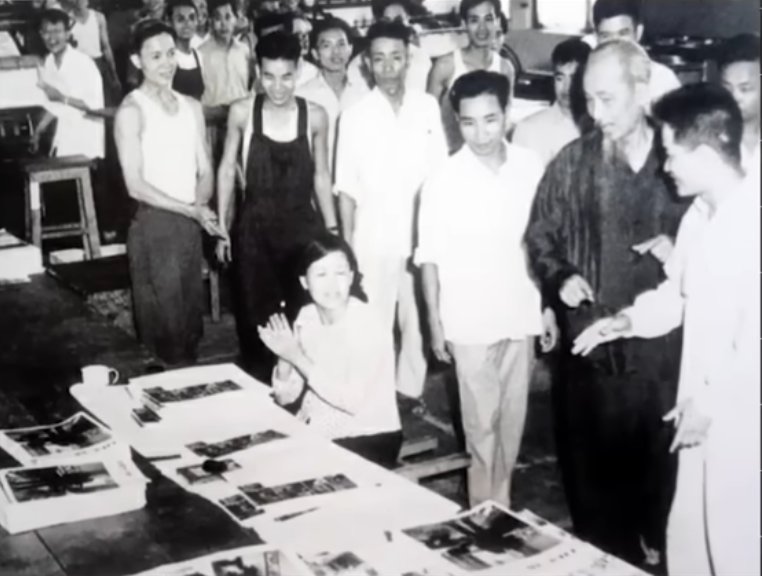
On September 5, 1950, in Thai Nguyen town, the military court held a special trial to adjudicate the case of Tran Du Chau. The trial attracted the attention of many officials, soldiers, and the public not only because of the seriousness of the case but also because it was the first case of a senior military official being brought to trial for corruption. Major General Tran Tu Binh, representing the government, sat as the prosecutor and read the indictment in a firm voice. He emphasized that the case was not only about punishing an individual but also a revolutionary moral lesson for the entire people, a warning for those profiting from the resistance.
The indictment detailed the charges against Tran Du Chau, including embezzling 57,950 Vietnamese dong, 149 US dollars, 28 pieces of green silk, accepting bribes of 200,000 dong from Le Si Cuu, selling pistols for money to indulge himself, illegally detaining military workers, and covering up and supporting the wrongdoings of his subordinates. For Le Si Cuu, the indictment pointed out that he embezzled 1,500 pieces of domestic fabric worth 700,000 dong, misappropriated 40,000 dong, inflated fabric prices, and bribed Tran Du Chau. Cuu also forged the seal of the Military Supply Department to support smuggling activities.
However, both Le Si Cuu and another accomplice, Bui Binh Chan, sought their own end during the time they were detained, leaving Tran Du Chau alone to face the law. Faced with irrefutable evidence, Tran Du Chau bowed his head and confessed to his crimes. Prosecutor Tran Tu Binh requested the death penalty, confiscation of three-quarters of his assets, and a fine double the value of the embezzled property. The sentence was reported to President Ho Chi Minh for consideration.
After careful consideration, President Ho Chi Minh rejected Tran Du Chau's plea for leniency. The decision reflected the strictness of the law and received strong support from the people. The case not only punished the guilty but also sent a strong message. No one is allowed to stand above the law, regardless of their position.
